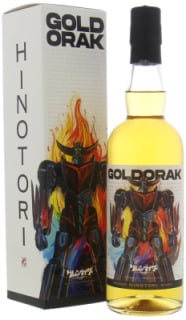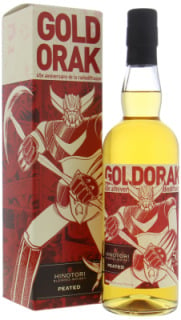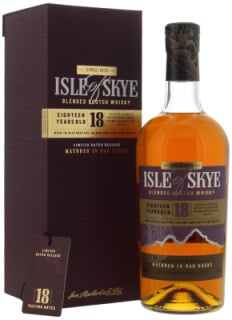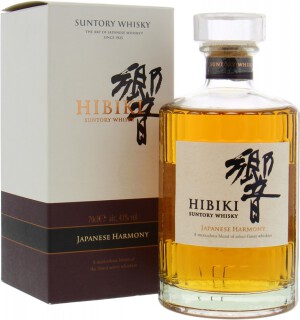Professional reviews
Serge Valentin (84)
It doesn't actually say it is Ailsa Bay, but that little bird we're well-acquainted with told me that… Well it's on the website, actually. Why the owners wouldn't let bottlers use this name, I don't quite know; Ailsa Bay, until now, has never quite been a new Lagavulin, has it. Remember they started distilling in 2007. Colour: pale white wine. Nose: soot, stone dust, pears and porridge. It's rather narrow, as I remembered it. Not unpleasant. With water: white peaches, plaster, damp oatcakes. Mouth (neat): very sweet, and indeed you could mention limoncello, pear liqueur and ashes. Very narrow again, but consequently, rather ultra-precise. With water: sugar coming out. Barley syrup, corn syrup… It almost deconstructs itself when watered down. Finish: medium, sweet, even more on corn syrup and, for that matter, corn whisky. Smoked, naturally. Cough drops in the aftertaste. Comments: a very curious smoky dram from the Lowlands that really improves with some breathing. Rather a lone voice in the world of whisky, I would say.
Malt Fascination (88)
From a regional perspective, as far as that is still a thing in Scotch whisky, the Lowlands are a strange one. If you regard the size of the regions it’s only second to the Highlands. But when it comes to distilleries it was pretty recent that there were only three distilleries left.
Some fifteen years ago (not an exact number) there were no Lowlands distilleries producing single malt whisky other than Bladnoch, Auchentoshan and Glenkinchie. All three have their issues, in my opinion. That’re not without their merits, but it’s a long shot from the glory days of St. Magdalene and Rosebank.
Currently there are some 22 distilleries in the same region (again, not an exact number). Many of which still have to come on steam or have started to release their inaugural bottles recently. Of course, as with everything Scotch, things are different than they were. Regional identity is one of those changed things, for example.
Some years ago, there was Islay, Highlands, Speyside, Lowlands and Campbeltown. Some counted the other ‘Islands’ as a separate region, but not everyone, and the distillery characters don’t support this argument either, so let’s leave it at that. The short list of regions had a rather simple list of default characteristics: Smoky, Spicy, Sweet, Floral and Funky.
Of course, this is a ridiculous simplification, but it was the thing that was used in the ‘introduction to Scotch’ tastings the world over. Currently, these characteristics don’t hold much merit to being a regional factor, since every region has their deviants, newer distilleries tend to do their own thing and be more idiosynractic, while older distilleries are trying to find more shelf space by diversifying. Whether or not that’s a good thing is an entirely different discussion.
Back to the point I was trying to make about the problem ‘The Lowlands’ has. From a historic perspective, they tend to be the lighter single malt whiskies from Scotland. Less bold flavors, floral, more timid and so on. There generally isn’t a massive sweetness, nor a huge helping of peat smoke or wood influence to help them along.
This makes their position awkward, since marketing your product at festivals is rather tough if people just came from the Ardbeg stand, or had more than a dram or three in general. The ‘average’ character of the whisky just can’t overcome the clunkiness that came before it.
HOWEVER! What I’ve found over the years is that these drams can be very rewarding if given the proper time and attention. Just chucking back a 1960s Rosebank at the end of a festival is going to leave you both poor and disillusioned, but if you give that same dram half an hour of time, it can very well be the best whisky you’ll have that year. Even at a festival.
Enter Ailsa Bay. Or at least, THIS Ailsa Bay. I’ve had some before that left me quite underwhelmed. Tasting notes to the one bottled by Duchess first. Explanation second.
Sniff:
A grassy and honeyed spirit, with a little helping of charry peat. Not smoky like Islay whiskies, there’s less of it and it’s a bit more woody. Honey, gorse, barley and a whiff of hay. There’s something minty too.
Sip:
There’s a bit of a salt and pepper bite initially, it tastes sharper than the 54-odd percent made me expect. Apart from that, there’s a thin layer of honey that gives way to hay, oak, heather and, surprisingly, no smokiness to speak of.
Swallow:
The finish mellows quickly, and gives a bit more room for the honey and flowery sweetness.
Much more ‘Lowlandy’ in style than I expected, and I think that’s a very good thing. The gentle smoky note gives it a nice extra layer. There’s quite enough to discover here!
I was a bit scared that this would be more like that other Ailsa Bay, generic, and without its own identity, but it is so much more than that!
This does, however, have that timidness that is so easily overwhelmed. It’s one to sit down with and sit down for, and then there’s is more than enough to discover, including a bit of that old fashioned regional style.
If you’d have a tasting and put this later in the line-up because of the ABV, it probably won’t work. Having said that, I really, really like this dram. A shame my part of the bottle-share has already gone…
I’m very much considering to get myself another bottle.
Also: Yes, this is officially a blended malt. In this case especially, it sounds very much like a statement to make sure the distillery name is not on the label. But what eventually counts is what the booze tastes like and there’s zero problems with that!
BOW (88)
This bottle was produced at Ailsa Bay Distillery, and has previously been marketed as Dalrymple. Since William Grant & Sons does not permit independent bottlings to be released under these brand names, we have named this release Paddy’s Milestone as a geographical reference.
Although it also has to be labelled as a blend, we can assure you that it is in fact a tea-spooned single malt. We wish you a wonderful time exploring this rare Lowland whisky.
Cheers!
Tasting notes:
Nose;
Fruity is the keyword here; Apricots, peaches, ripe Mangoes and vanilla a combined with a wee scent of fresh cut grass, green apples an eucalyptus. This is lowland whisky in its purest form!
Taste:
The before mentioned savors are once again eminent; Apricots, peaches fresh cut grass, green apples and some nutmeg. A creamy mouthfeel and butterscotch candy.
Finish;
A mildly and smooth finish that brings new savors of pear drops to the foreground and some fresh lemony zest.
Balance and Complexity;
Well balanced in both nosing and tasting. No off notes and it does have that grassy lowland style. The complexity is in the eucalyptus and nutmeg savors, very tasty!
An honest dram this is. This a bargain it tastes exactly as a suburb lowlander should be. This all the way the lowlands are known for; a fresh and exciting dram well worth the purchase. A true BFYB (Bang For Your Buck) whisky.












